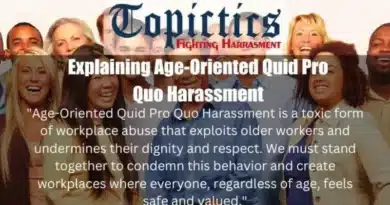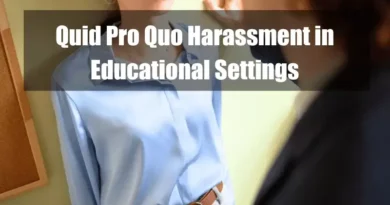Quid Pro Quo in the Executive Branch Definition: In-Depth Analysis
Basic Quid Pro Quo in the Executive Branch Definition
At its core, quid pro quo in the executive branch refers to exchanging official acts for something of value. This can include political support, financial contributions, or other personal benefits. The essence of this practice lies in leveraging public office for personal or political gain. Such actions are often unethical and, in many cases, illegal, as they compromise the integrity of governmental operations.
Key Takeaways
| Key Takeaways From the Article |
|---|
| Quid pro quo in the executive branch involves exchanging official acts for personal benefits, often leading to corruption. |
| Legal and ethical dimensions of quid pro quo raise significant concerns, including bribery and erosion of public trust. |
| Historical and modern examples, like the Watergate scandal and the Ukraine case, highlight the ongoing relevance of quid pro quo. |
| Mechanisms include political contributions, lobbying, regulatory favors, and contract awards, each undermining fair decision-making. |
| Preventative measures include stringent laws, transparency initiatives, and robust oversight bodies to ensure accountability. |
| Public awareness and advocacy are crucial in combating quid pro quo practices and fostering a culture of transparency. |
| Technological advancements like digital platforms can enhance transparency and help detect quid pro quo arrangements. |
| Continuous reforms and public engagement are essential for effective governance and combating quid pro quo in the executive branch. |
Let’s explore in-depth:
Introduction
Quid pro quo, a Latin term meaning “something for something,” is fundamental in political and legal discourse. In the context of the executive branch, this concept carries significant weight, often implicating ethical and legal boundaries. This paper delves into the definition, implications, and examples of quid pro quo within the executive branch, providing a thorough understanding of its impact on governance and public trust.
Legal and Ethical Dimensions
Quid pro quo arrangements in the executive branch raise significant legal and ethical concerns. Legally, these exchanges can constitute bribery or corruption, offenses strictly prohibited under various statutes. For instance, federal laws such as the Hobbs and Foreign Corrupt Practices Act explicitly criminalize such exchanges. Ethically, these arrangements undermine public trust and erode the foundational principles of fair and transparent governance.
Historical Context
Throughout history, numerous instances of quid pro quo in the executive branch have come to light, each shedding light on the intricate dynamics of power and influence. One notable example is the Watergate scandal. President Nixon’s administration engaged in illicit activities, including quid pro quo exchanges, to secure political advantages. This scandal underscored the dangers of such practices and led to significant reforms to curb executive branch corruption.
Modern-Day Implications
In contemporary politics, quid pro quo remains a pressing issue. The rapid evolution of political fundraising and lobbying has created new avenues for potential quid pro quo arrangements. High-profile cases, such as the allegations against President Trump in the Ukraine scandal, illustrate the ongoing relevance of this issue.
These cases highlight the challenges of maintaining ethical standards amidst the complexities of modern governance.

Mechanisms of Quid Pro Quo
Understanding how quid pro quo operates within the executive branch requires an examination of the mechanisms involved. Typically, these arrangements involve a clear exchange: an official act in return for a benefit. This could range from awarding government contracts to providing regulatory favors. The key element is the direct link between the act and the benefit, distinguishing quid pro quo from other forms of influence or persuasion.
Impact on Governance
The impact of quid pro quo on governance is profound. Such practices distort decision-making processes, leading to policies that favor specific individuals or groups at the expense of the public interest. This undermines the principles of democracy and can significantly harm societal welfare. Moreover, the perception of corruption can diminish public trust in government institutions, further exacerbating the problem.
Case Studies
Examining specific case studies provides concrete insights into the dynamics of quid pro quo in the executive branch. One notable case involves Governor Rod Blagojevich of Illinois, who was convicted of attempting to sell President Obama’s vacated Senate seat in exchange for personal benefits. This case exemplifies the blatant abuse of power associated with quid pro quo arrangements and the legal repercussions that follow.

Preventative Measures
Addressing quid pro quo in the executive branch requires robust preventative measures. These include stringent laws and regulations that clearly define and penalize such practices. Additionally, transparency initiatives, such as public disclosure of political contributions and lobbying activities, can help deter potential quid pro quo arrangements. Effective enforcement of these measures is crucial to ensuring their success.
Role of Oversight Bodies
Oversight bodies are critical in monitoring and addressing quid pro quo in the executive branch. Entities such as the Office of Government Ethics and congressional oversight committees investigate allegations and ensure compliance with ethical standards. Their work is essential in maintaining accountability and deterring unethical behavior.
Public Awareness and Advocacy
Public awareness and advocacy are also vital in combating quid pro quo. Educating the public about the dangers of such practices can foster a culture of accountability and transparency. Advocacy groups can play a key role in pushing for reforms and holding public officials accountable for their actions.
Challenges and Limitations
Despite these efforts, challenges and limitations persist. The complexity of proving quid pro quo arrangements can hinder enforcement actions. Additionally, the evolving nature of political fundraising and lobbying presents new challenges in detecting and addressing these practices. Continuous adaptation and innovation in regulatory approaches are necessary to keep pace with these developments.
Detailed Examination of Specific Mechanisms
Political Contributions
One common quid pro quo in the executive branch involves political contributions. High-value donors may seek preferential treatment or access to decision-makers in exchange for their financial support. This can manifest in various ways, such as favorable policy decisions or appointments to influential positions.
The direct correlation between the contribution and the benefit highlights the core quid pro quo dynamic.
Lobbying Activities
Lobbying is another area that is rife with potential for quid pro quo arrangements. Lobbyists, acting on behalf of special interest groups, often seek to influence executive branch officials by offering various inducements. These include future employment opportunities, lucrative contracts, or other personal advantages. The key concern here is the potential for policy decisions to be swayed by these exchanges rather than based on merit or public interest.
Regulatory Favors
Executive branch officials wield significant regulatory power, making regulatory favors a prime area for quid pro quo. Companies or individuals may seek favorable regulatory treatment, such as relaxed enforcement or expedited approvals, in return for providing benefits to officials. This can undermine regulatory integrity and lead to outcomes that prioritize private gains over public safety and welfare.
Contract Awards
The awarding of government contracts is another domain susceptible to quid pro quo. Officials may grant contracts to certain companies in exchange for personal benefits, such as kickbacks or campaign contributions. This distorts the competitive bidding process and can result in suboptimal use of public funds, as contracts are awarded based on favoritism rather than merit.

Ethical Considerations and Public Perception
Trust in Governance
Quid pro quo arrangements erode public trust in governance. When citizens perceive that decisions are influenced by personal gain rather than the public good, their confidence in government institutions diminishes. This can lead to decreased civic engagement and a general disillusionment with the political system.
Ethical Standards
Maintaining high ethical standards is crucial in the executive branch. Officials are expected to act in the public’s best interest, making decisions based on merit and fairness. Quid pro quo arrangements violate these standards, compromising the ethical foundation of governance. Reinforcing ethical guidelines and holding officials accountable is essential in preserving the integrity of the executive branch.
Transparency and Accountability
Transparency and accountability are key to addressing quid pro quo. Making political contributions, lobbying activities, and government contracts more transparent makes detecting and deterring unethical practices easier.
Accountability mechanisms, such as independent oversight bodies and whistleblower protections, further enhance the ability to identify and address quid pro quo arrangements.
Legislative and Regulatory Frameworks
Federal Laws
Several federal laws aim to combat quid pro quo in the executive branch. The Hobbs Act, for instance, criminalizes extortion by public officials, including quid pro quo arrangements. The Foreign Corrupt Practices Act targets bribery of foreign officials, highlighting the international dimensions of this issue. These laws provide a legal framework for prosecuting and deterring quid pro quo practices.
State Laws
In addition to federal laws, many states have statutes addressing quid pro quo. These laws vary in scope and stringency but aim to prevent corruption and ensure ethical behavior among state-level executive branch officials. Understanding the nuances of these state laws is important for a comprehensive approach to addressing quid pro quo.
International Perspectives
Quid pro quo is not limited to the United States; it is a global issue. Many countries have implemented laws and regulations to combat such practices within their executive branches. International conventions, such as the United Nations Convention against Corruption, provide a framework for global cooperation in addressing quid pro quo and related forms of corruption.
Technological and Societal Changes
Digital Transparency
Advancements in technology have the potential to enhance transparency and accountability in the executive branch. Digital platforms can facilitate the disclosure of political contributions, lobbying activities, and government contracts, making quid pro quo arrangements easier to detect. Leveraging technology in this way is an important step in modernizing anti-corruption efforts.
Societal Expectations
Societal expectations regarding ethical behavior in the executive branch are evolving. There is increasing demand for transparency, accountability, and integrity from public officials. This shift in societal attitudes can drive reforms and foster a culture that rejects quid pro quo practices. Engaging with and responding to these societal expectations is crucial for effective governance.
Future Directions

Ongoing Reforms
Ongoing reforms addressing quid pro quo in the executive branch are essential. These include updating legal frameworks, enhancing oversight mechanisms, and leveraging technology for greater transparency. These reforms must be evaluated and adapted to remain effective in an ever-changing political landscape.
Public Engagement
Engaging the public in efforts to combat quid pro quo is vital. Educating citizens about the dangers of such practices and encouraging civic participation can help build a culture of accountability. Public pressure can also drive political leaders to prioritize anti-corruption measures and uphold ethical standards.
Conclusion
Quid pro quo in the executive branch is a complex and multifaceted issue with significant implications for governance and public trust. Understanding its definition, mechanisms, and impact and implementing robust preventative measures can mitigate the risks associated with quid pro quo. Through continued vigilance, transparency, and public engagement, we can work towards a more ethical and accountable executive branch, ensuring that decisions are made in the public’s best interest rather than for personal gain.
FAQ
How does quid pro quo in the executive branch differ from general political bargaining?
Quid pro quo in the executive branch specifically involves the exchange of official acts for personal benefits, which can include political support, financial contributions, or other personal gains. General political bargaining, on the other hand, often involves negotiations and compromises to achieve policy goals without necessarily crossing ethical or legal boundaries. The key difference lies in quid pro quo arrangements’ unethical and often illegal nature, where official power is leveraged for personal gain rather than public benefit.
Can quid pro quo arrangements influence executive orders?
Yes, executive orders can be influenced by quid pro quo arrangements. If an executive official issues an order in exchange for personal benefits, such as political support or financial contributions, it constitutes a quid pro quo. This undermines the integrity of the executive order and raises significant ethical and legal concerns. Such actions can lead to investigations and potential legal consequences for the officials involved.
What reforms address quid pro quo in the executive branch issues?
Here is the table of reforms addressing quid pro quo issues:
| Reforms Addressing Quid Pro Quo Issues |
|---|
| Strengthening Legal Frameworks: Enacting and updating laws such as the Hobbs Act and state-level anti-corruption statutes. |
| Campaign Finance Reform: Implementing stricter regulations on political contributions to reduce money’s influence in politics. |
| Enhancing Transparency: Mandating public disclosure of political contributions, lobbying activities, and government contracts. |
| Digital Platforms: Utilizing technology to create accessible databases for tracking political donations and lobbying efforts. |
| Robust Oversight Mechanisms: Strengthening the roles of entities like the Office of Government Ethics and congressional oversight committees. |
| Whistleblower Protections: Enhancing protections for whistleblowers to encourage reporting of unethical practices without fear of retaliation. |
| Public Engagement and Education: Promoting public understanding of quid pro quo issues through educational campaigns. |
| Advocacy Groups: Supporting advocacy groups that push for anti-corruption measures and hold public officials accountable. |
| Technological Innovations: Implementing e-governance tools to streamline monitoring and detect potential quid pro quo arrangements. |
| Blockchain Technology: Exploring the use of blockchain for transparent and tamper-proof records of political contributions and government transactions. |
| Ethical Training for Officials: Executive branch officials must regularly train on ethical standards and legal regulations. |
| Ethics Committees: Establishing ethics committees within government agencies to guide and oversee ethical matters. |
What is an “official act” in the executive branch’s quid pro quo context?
An “official act” in the executive branch refers to any decision, directive, or administrative action that an executive official undertakes as part of their official duties—such as issuing executive orders, regulatory decisions, or policy implementations. When such actions are offered or received in exchange for personal benefits, they fall under the definition of a quid pro quo arrangement, thereby undermining the integrity of the decision-making process and eroding public trust.
How is “bribery” defined within the executive branch concerning quid pro quo?
Within the executive branch, bribery involves the act of offering, soliciting, or accepting any form of benefit—whether monetary or otherwise—in exchange for performing or abstaining from an official act. This practice directly violates ethical standards, as it compromises the impartiality of public officials and shifts decision-making from a commitment to public interest to personal gain, thereby destabilizing the fairness expected in governmental operations.
What constitutes a “thing of value” in executive branch quid pro quo transactions?
A “thing of value” encompasses any item, service, monetary gift, or promise that holds significance and can influence the behavior of an executive official. In the context of the executive branch, accepting such benefits in return for performing official duties crosses ethical and legal boundaries, as it transforms routine decision-making into an exchange where public actions are directly tied to personal incentives.
What does “honest services fraud” imply within the executive branch?
Honest services fraud in the executive branch describes schemes whereby officials compromise their duty to provide impartial and unbiased services to the public. When an executive official engages in quid pro quo arrangements, they essentially deprive the public of the honest services expected from the government, as their decisions are tainted by the influence of personal gain rather than the merit of sound public policy.
How are “campaign contributions” linked to quid pro quo practices in the executive branch?
Campaign contributions Within the executive branch become problematic when directly tied to specific official actions or favorable policy decisions. Although contributions themselves are a legitimate part of the political process, the exchange of such funds for an explicit or implicit promise to exercise governmental power creates a quid pro quo situation, potentially leading to ethical breaches and undermining the accountability of executive officials.
What distinguishes “extortion” from other quid pro quo activities in the executive branch?
Extortion in the executive branch refers to situations where an official uses their position to coerce or threaten another party into providing a benefit by implying that a necessary government service or decision will be withheld if the demand is not met. Unlike a mutual agreement, extortion involves an abuse of power where the exchange is forced rather than voluntarily negotiated, marking a severe breach of ethical and legal standards in public service.
What is meant by “pay-to-play” within the executive branch?
“Pay-to-play” describes a situation in which access to government contracts, permits, or favorable administrative decisions is conditioned on providing a benefit or payment to an executive official. In the executive branch, this practice directly converts public service into a marketplace for influence, where decisions are no longer based solely on merit or public interest but rather on the ability to pay, thereby eroding fairness and transparency.
How does “lobbying” intersect with quid pro quo issues in the executive branch?
Lobbying in the executive branch involves advocating for particular policies or decisions; however, problems arise when these activities cross into quid pro quo territory. When lobbyists offer personal benefits or incentives to executive officials in exchange for favorable treatment or actions, the process shifts from a legitimate exchange of information to an unethical transaction, blurring the lines between lawful advocacy and illicit influence.
What is the role of an “explicit agreement” in establishing quid pro quo within the executive branch?
An explicit agreement in this context is one where the terms of the exchange are clearly documented or articulated, leaving no ambiguity about the connection between the benefit provided and the official act performed. In the executive branch, such a documented understanding serves as concrete evidence that an official acted in exchange for personal gain rather than in the public interest, making it a crucial element in identifying and addressing unethical quid pro quo arrangements.
How does an “implicit agreement” factor into executive branch quid pro quo allegations?
An implicit agreement occurs when there is a mutual, though not formally documented, understanding that an executive official will exchange an official act for a benefit. Even without explicit written evidence, a pattern of conduct or circumstantial evidence may reveal that the official’s decisions were influenced by expectations of personal gain, thereby creating a covert quid pro quo environment that undermines the objective exercise of governmental power.
What role does “intent” play in identifying quid pro quo behavior within the executive branch?
Intent is a pivotal element in assessing quid pro quo scenarios because it focuses on the decision-making process of an executive official. For a quid pro quo to be established, it must be shown that the official knowingly traded an official act for a personal benefit, reflecting a deliberate deviation from ethical and legal norms. This deliberate intent violates public trust and forms the basis for evaluating the severity of the misconduct in the executive branch.
How does a “conflict of interest” manifest in executive branch quid pro quo cases?
A conflict of interest arises when an executive official’s personal interests interfere with their duty to serve the public impartially. In quid pro quo situations, this conflict is evident when the official’s decision is influenced by a personal benefit rather than the public good, leading to biased decisions that compromise the integrity of the executive branch’s operations and erode the trust placed in public officials.
What does the “appearance of impropriety” mean in the context of executive branch quid pro quo practices?
The “appearance of impropriety” refers to any conduct by an executive official that, while it may not be legally prohibited, creates a public perception of unethical behavior or favoritism. Even if no explicit law is broken, such appearances can damage public confidence by suggesting that decisions are being influenced by personal gain rather than objective considerations, highlighting the importance of transparency and ethical behavior in maintaining the executive branch’s credibility.
How does “recusal” serve as a safeguard against executive branch quid pro quo risks?
Recusal is the process by which an executive official removes themselves from decision-making processes where there exists a potential conflict of interest or a risk of quid pro quo influence. By stepping aside, the official helps to ensure that the decision is made impartially and that the integrity of the process is maintained. This preventative measure is a key ethical practice within the executive branch to avert the perception or reality of personal benefit influencing official actions.
What are “whistleblower protections,” and how do they relate to exposing quid pro quo within the executive branch?
Whistleblower protections are legal safeguards designed to shield individuals who expose unethical or illegal practices within the executive branch, including quid pro quo arrangements. These protections ensure that employees and insiders can report misconduct without fear of retaliation, thereby promoting a culture of transparency and accountability. By encouraging the disclosure of improper exchanges, whistleblower protections play a crucial role in maintaining ethical standards and public trust in executive governance.









